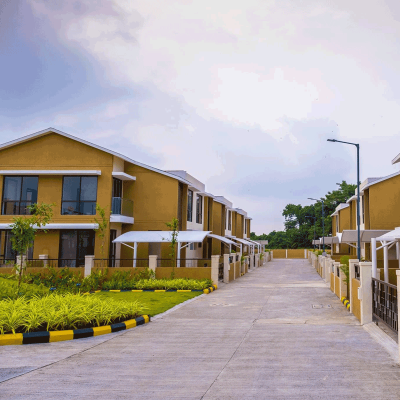- Home
- Real Estate
- Brick by Brick

Brick by Brick
<span style="font-weight: bold;">RAJESH KRISHNAN </span>discusses the impact of RERA on the affordable housing sector. <p></p> <p> The passage of RERA is a milestone event for the real estate sector. RERA aims to protect the interests of home buyers through the creation of local real-estate regulatory authorities. Among a host of other controls, the Act requires developers to compulsorily register projects and create escrow accounts to ring-fence project receivables. Projects can no longer be launched without all approvals in place. These measures are a welcome move to protect the interest of consumers. However, we believe that the affordable housing sector may be adversely impacted unless the government, along with the private sector, steps up on its share of the bargain.</p> <p> <span style="font-weight: bold;">Smaller developers at risk</span><br /> With over 50,000 developers in India, the real estate market is highly fragmented. It is fair to assume that RERA will trigger consolidation in the market. The larger, well-capitalised developers may grow stronger and the smaller developers may not survive. This part is well understood and most people would agree that the industry will perhaps benefit from consolidation. The part that is probably missed in the discussion is the fact that, today, over 90 per cent of affordable housing supply comes from small local developers across the country. Most of these developers may not survive the new RERA world. If this were to happen, we run the risk of losing the little supply of affordable housing that we are currently receiving in the country. </p> <p> <span style="font-weight: bold;">The problem for affordable housing</span><br /> India needs over 5 million homes each year to achieve 'Housing for All'. This translates to a project finance requirement of $20-30 billion annually. Further, at an individual project level, the funding need for most affordable housing projects is typically between Rs 5 crore to Rs 30 crore. Given the smaller ticket sizes, the affordable housing sector requires specialist institutions to raise and deploy $20-30 billion capital across ~10,000 projects each year. Today, there are few institutions set up to address this need. </p> <p>Against this backdrop, local developers often borrow at exorbitant rates from informal sources to fund pre-approval expenses. Even a six-month delay in approvals can bring down the margin of developers by 50 per cent. </p> <p> <span style="font-weight: bold;">Recommended measures</span><br /> Therefore, to ensure the survival of smaller local developers who supply a majority of affordable homes, it is recommended that the government take measures to treat the cause and not just the symptom. First, measures aimed at streamlining regulatory bottlenecks and approvals will go a long way to reduce risks faced by developers. Second, the government can perhaps reduce the need for project funding by offering deferred payment terms for approval costs (which represent a large share of the pre-launch funding requirement). Third, providing developers access to timely financing will go a long way in creating a level playing field for smaller developers. </p> <p>Brick Eagle's new Alternative Investment Fund is an attempt to address this gap. We are raising a Rs 500-crore fund that aims at bridging the funding gap faced by local developers at a pre-launch stage - the Rs 500-crore fund aims to catalyse development of 50,000 homes for low-income families across the country.</p> <p> <span style="font-weight: bold;">About the author: <br /> Rajesh Krishnan, Founder & CEO, Brick Eagle Group,</span> promoted Brick Eagle in 2011 with a vision to deliver 1 million affordable homes in India. He has incubated five developers and seven service providers in the affordable housing sector to date.</p>























